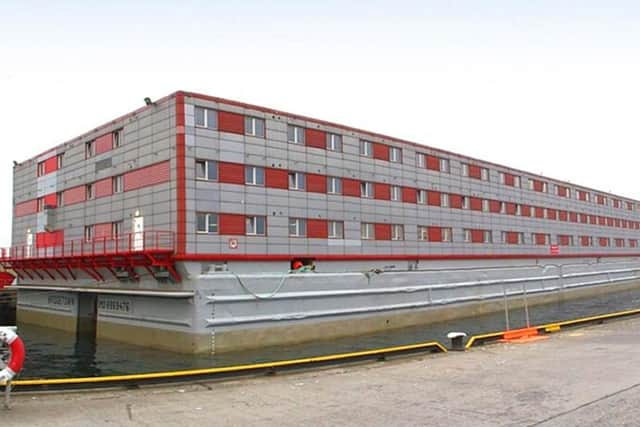Preventing migrants from working in the face of a labour shortage doesn’t make sense - Andy Brown
In Japan such problems are becoming acute. There the average age has reached 48.6 years and is still rising. What Japan desperately needs is an influx of young healthy workers but it has long been reluctant to allow any significant immigration and any woman risks losing her job and paying a fortune for housing and childcare if she decides to give birth.
I thought of that this week as I was reading the headlines about housing asylum seekers. In a society that is short of workers it seems rather strange that we are refusing to allow those who are seeking asylum to do any work whilst their claim is processed.
Advertisement
Hide AdAdvertisement
Hide AdIn the days when asylum applications were dealt with quickly and decisions issued in a few short weeks, that ban on working might have been practical.


Now that it takes on average over a year it is very hard to justify.
Letting people work means that they finance their own upkeep and pay taxes. Forcing them to sit idle means that we are paying out over £5m a day to maintain people who aren’t allowed to work in the middle of a labour shortage.
Whatever your view of economic migrants or of those with a case to be granted asylum this can’t make sense. The damage of this insistence on refusing to allow fit healthy adults to work doesn’t end there.
Advertisement
Hide AdAdvertisement
Hide AdOnce it becomes policy that no applicant for asylum can work then it becomes necessary to find somewhere to place those people at public expense. Putting them into the cheapest hotels that can be found has been the solution adopted by this government so far. That isn’t a popular solution with anyone. Refugee families don’t like being cooped up all day in small hotel rooms and those who have lived in Britain a lot longer and have their own housing needs don’t tend to like paying taxes to cover the expense.
The situation becomes even worse if it is decided to herd a couple of thousand refugees together in an ex military camp and leave them with nothing to do all day other than to worry about their future. The people of Linton on Ouse were understandably furious when they were expected to find ways of coping with hosting that challenge at short notice without consultation.
When that location was demonstrated to be totally unsuitable the government didn’t go away and rethink what was sensible. It simply decided to try and find new places where it could concentrate large numbers of people. Other former military sites in Yorkshire have now come under consideration.
Putting people in camps doesn’t work any better if the government attempts to fly them off to Rwanda and house them there. The cost of flights, the difficulties of forcing people onto those flights, and the cost of paying one of the most land hungry societies on the planet to find space and work for many years are prohibitive. Even if you ignore any moral concerns or legal difficulties, the economics simply don’t add up.
Advertisement
Hide AdAdvertisement
Hide AdThe alternative approach of letting people travel to where paid work is available in this country is a much quicker and more effective solution.
Britain has a shortage of fruit and vegetable pickers and packers that has helped to drive up prices in the shops and is weakening our food security. Yet we are refusing to use a readily available workforce. We have a serious shortage of care workers.
Yet we are ignoring the availability of working age people, many of whom come from societies that value the dignity of old age. Other asylum seekers are highly skilled IT specialists or medical professionals.
If someone who has worked for a year loses an asylum case and is deemed an economic migrant then it will surely be better if they leave having contributed to British society with some money to support themselves.
Advertisement
Hide AdAdvertisement
Hide AdIf it turns out that the person has arrived as a genuine refugee then they would start their right to remain with a track record of employment, local connections and much better integrated into the society they would be joining.
Britain has gained enormously from some of the previous waves of arrivals. Despite all the fuss that was made at the time about the risk of Ugandan Asians taking British jobs, what actually happened is that many of them became successful business people and ended up providing employment.
Instead of assuming that the latest group of immigrants are a problem, why don’t we try using more of them as a solution to our shortage of workers?
Andy Brown is the North Yorkshire Councillor for Aire Valley. He is a member of the Green Party.